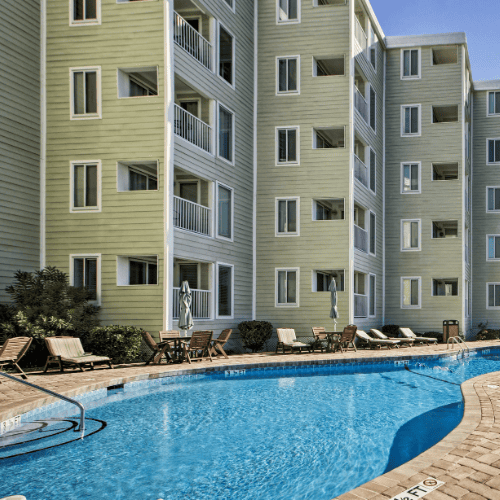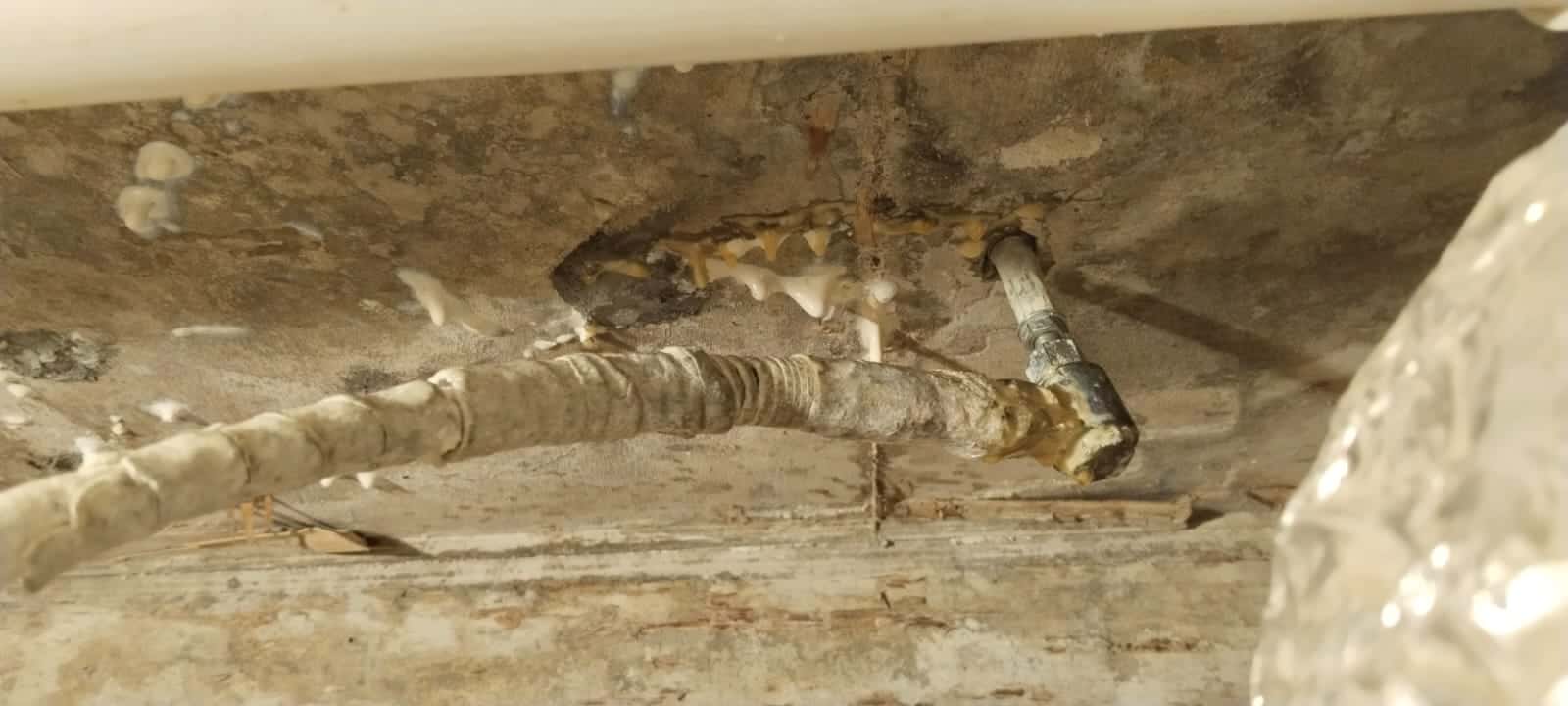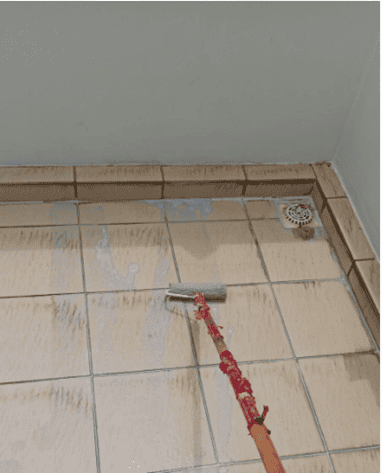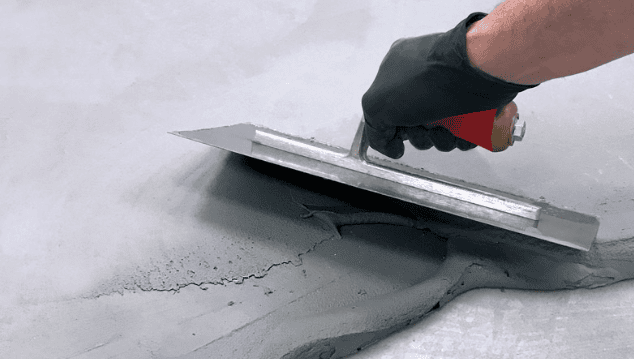With Singapore’s tropical climate and frequent rainfall, condos are particularly vulnerable to water damage if not adequately waterproofed. The importance of waterproofing for condos in Singapore is essential for protecting condo structures from water infiltration, which can lead to various issues such as structural deterioration, mold growth, and damage to interior finishes.
Proper waterproofing upfront can save condo owners and management companies significant costs in the long run. It helps prevent costly repairs and maintenance due to water-related damage.
A well-maintained and waterproofed condo is more attractive to potential buyers or tenants. It helps preserve the property’s value and enhances its marketability.
Waterproofing not only protects the building but also contributes to a healthier indoor environment by preventing moisture-related problems like mold and mildew, which can impact occupants’ health.
Condos in Singapore are subject to building codes and regulations that mandate proper waterproofing to ensure structural integrity and safety. Compliance with these requirements is crucial for legal and insurance purposes.
Waterproofing extends the lifespan of building materials and structural components by preventing water-induced deterioration, such as corrosion of metal elements and weakening of concrete.
Waterproofing is a critical aspect of condo maintenance and construction in Singapore.
Principal of Waterproofing
Waterproofing aims to create a barrier that prevents water from infiltrating into the structure. Waterproofing materials should adhere well to surfaces and remain flexible to accommodate structural movements without compromising the barrier’s integrity.
Waterproofing systems should be durable, capable of withstanding exposure to environmental elements, and maintain their effectiveness over time.
Proper surface preparation is crucial for effective waterproofing. This may include cleaning, repairing cracks or defects, and ensuring a smooth substrate.
Various types of waterproofing materials are available, such as membranes, coatings, sealants, and grouts. The techniques used to apply waterproofing materials, such as brushing, spraying, rolling, or injecting.
Waterproofing should be integrated seamlessly with other building components, such as joints, penetrations, and transitions, to create a continuous and effective barrier.
Types of Waterproofing Methods in Singapore
In Singapore, waterproofing methods are crucial for protecting buildings from water damage, especially in areas prone to heavy rainfall and high humidity. Here’s an overview of the types of waterproofing methods commonly used:
PU Injection grouting
PU (Polyurethane) injection is a specialized and popular method used in waterproofing and structural repair projects. PU injection is commonly used to repair cracks in concrete walls, floors, and ceilings caused by settlement, shrinkage, or structural movement. It’s an effective method for waterproofing concrete, basements, foundations, and other below-grade structures.
Polyurethane (PU) Injection grouting involves injecting waterproofing compounds, such as polyurethane or epoxy, into cracks, voids, or joints to seal and waterproof the structure.
The effectiveness of injection grouting in improving structural integrity and preventing water intrusion in critical areas.
PU injection provides a highly effective waterproofing solution, sealing off water entry points and preventing further damage. It is versatile and can be used in various applications, including concrete structures, basements, tunnels, and retaining walls. Unlike traditional methods that may involve extensive demolition, PU injection is non-destructive, as it only requires small holes to be drilled. The process is relatively quick, with minimal disruption to daily activities or occupants of the building. PU injections create durable seals that can withstand the test of time, providing long-term protection against water leaks.
Compared to major structural repairs or replacements, PU injection is often more cost-effective, saving on labor and material costs.
In construction projects, PU injection can be used for soil stabilization to improve the load-bearing capacity of the ground.
PU injection is suitable for a wide range of concrete structures, including basements, foundations, retaining walls, tunnels, and swimming pools. It can effectively seal cracks of varying sizes and depths, providing long-lasting protection against water intrusion.
Clear Penetrative Treatment (CPT)
Clear Penetrative Treatment waterproofing involves the application of waterproof membranes, to create a continuous barrier against water infiltration. It is a seamless, flexible membrane when cured which offers good waterproofing along with added strength to the surface. It has flexible properties, allowing it to accommodate structural movements without compromising its waterproofing abilities.
Waterproofing membranes are designed to withstand weathering, UV exposure, and temperature changes, ensuring long-term protection. Waterproofing membranes can be used in various applications, including roofs, basements, balconies, and bathrooms, making them versatile solutions for different parts of a building.
Clear Penetrative Treatment method protects the structural integrity of buildings by preventing water damage to foundations, walls, and floors. It is also contributing to a more comfortable indoor environment by reducing humidity and preventing mold growth.
Cementitious Waterproofing:
Cementitious waterproofing is a method that involves the application of cement-based materials to create a waterproof barrier on surfaces such as concrete, masonry, and other construction materials.
The benefits of cement-based coatings are in providing a durable and breathable waterproofing barrier for concrete structures. The limitations and maintenance considerations associated with cementitious waterproofing, such as surface preparation and reapplication intervals.
The cementitious waterproofing material, which is usually in the form of a slurry or a mix of cement and additives, is applied to the surface using a brush, roller, or sprayer. The applied material is allowed to cure and form a solid, durable waterproof membrane. It can be applied to various surfaces, including vertical and horizontal surfaces, making it suitable for waterproofing walls, foundations, roofs, and balconies. Once cured, cementitious waterproofing forms a durable barrier that can withstand exposure to weather elements, UV radiation, and mechanical stress.
Unlike some other waterproofing methods, cementitious coatings are breathable, allowing moisture vapor to escape while preventing liquid water from entering.
Cementitious waterproofing is often more cost-effective compared to other waterproofing methods, making it a popular choice for many construction projects. The application process is relatively straightforward and can be done by skilled contractors, reducing installation time and labor costs.
It’s commonly used for waterproofing basement walls and floors to prevent water seepage and moisture intrusion.
Cementitious coatings can be applied to roofs to provide protection against rainwater and maintain the integrity of the roofing system. It’s used to waterproof the exterior walls of buildings to protect against water infiltration and damage.
Cementitious waterproofing is also suitable for sealing and waterproofing water features such as swimming pools, fountains, and tanks.
Requirements for Condo Waterproofing in Singapore
Condo waterproofing in Singapore is subject to stringent regulatory standards and building codes established by authorities such as the Building and Construction Authority (BCA) and the Housing Development Board (HDB). These regulatory frameworks aim to ensure the safety, structural integrity, and durability of buildings, including their waterproofing systems.
Building and Construction Authority (BCA):
- The BCA is the primary regulatory body responsible for overseeing building construction and maintenance standards in Singapore.
- BCA’s regulations and guidelines encompass various aspects of building construction, including waterproofing requirements for different types of structures, including condos.
- Waterproofing guidelines provided by BCA cover aspects such as materials, installation methods, quality standards, testing procedures, and maintenance practices.
Housing Development Board (HDB):
- HDB, as a significant housing provider in Singapore, sets standards and guidelines for waterproofing in public housing estates, including condominiums under its purview.
- HDB’s requirements for condo waterproofing align with BCA’s standards and may include additional specifications tailored to public housing developments.
Compliance with Codes and Standards:
- Condo developers, owners, and management companies are required to ensure that all waterproofing work complies with the relevant codes and standards set by BCA, HDB, and other regulatory bodies.
- Compliance encompasses using approved waterproofing materials, following prescribed installation methods, engaging licensed waterproofing contractors, conducting quality assurance checks, and obtaining necessary permits or approvals.
Inspections and Certifications:
- BCA and HDB may conduct inspections and audits to verify compliance with waterproofing standards during and after construction or renovation projects.
- Licensed waterproofing contractors are required to adhere to BCA’s licensing requirements, which include qualifications, experience, and adherence to the code of conduct. Contractors may also need to provide warranties or guarantees for their workmanship.
Consequences of Non-Compliance:
- Non-compliance with waterproofing regulations can lead to legal consequences, such as penalties, fines, and orders for rectification or rework.
- Inadequate waterproofing that results in water leakage or structural damage may also affect the habitability, safety, and value of condo units, leading to disputes, liabilities, and costly repairs.
By highlighting the regulatory framework and the importance of compliance with BCA and HDB standards, condo owners and stakeholders can understand the critical role of adhering to waterproofing requirements to ensure the quality, safety, and longevity of their properties.
Importance of Hiring Licensed Waterproofing Contractors:
Condo owners and developers in Singapore must prioritize hiring licensed waterproofing contractors who are registered with relevant authorities. Here’s why:
Compliance and Quality Assurance:
- Licensed waterproofing contractors have undergone rigorous training, have the necessary qualifications, and adhere to industry standards and best practices. Their work is regularly inspected and monitored by regulatory bodies, ensuring compliance with building codes and waterproofing regulations.
- Hiring a licensed contractor provides assurance that the waterproofing work will be conducted professionally, using approved materials and methods, and meeting the required standards of quality and durability.
Expertise and Experience:
- Licensed contractors have the expertise and experience in assessing waterproofing needs, designing effective solutions, and implementing waterproofing systems tailored to specific condo structures and conditions.
- They are familiar with the latest technologies, materials, and techniques in waterproofing, enabling them to deliver reliable and long-lasting results.
In conclusion, effective waterproofing is not just a necessity but a crucial investment in safeguarding condo properties in Singapore. By implementing quality waterproofing solutions, condo owners and developers can ensure not only the structural integrity of their buildings but also the comfort and well-being of occupants.
A waterproofed condo is more than just a building; it’s a sanctuary where residents can enjoy peace of mind, knowing that their homes are protected from water damage, mold, and other water-related issues. This level of protection enhances occupant comfort and creates a healthy living environment for everyone.
Moreover, effective waterproofing contributes significantly to maintaining the property’s value in the long term. A well-maintained and waterproofed condo is more attractive to potential buyers or tenants, and it commands higher resale or rental value. It also reduces the risk of costly repairs or renovations due to water-related damage, saving condo owners time, money, and stress.
As we navigate the dynamic landscape of construction and property management, let’s remember the importance of proactive waterproofing measures. Let’s prioritize quality, compliance with regulatory standards, and collaboration with experienced waterproofing professionals to ensure the continued success and sustainability of condo properties in Singapore.
Waterproofing Contractor for Condo Resident, A Conclusion on Waterproofing Contractors
In every project, SWC Construction always sends our highly experienced waterproofing contractors to do the job. Wherever you are in Singapore, trust that we will provide you with all the services you’ll need.
We received certification from the Building and Construction Authority (BCA). So you can be confident about the quality of our work.
For over two decades, we have dedicated ourselves to building trust with our clients. Our track record includes numerous successful projects where we have consistently delivered on our commitments. The loyalty of our clients over the years is a testament to our reliability. Our strong reputation for outstanding customer service has played a pivotal role in solidifying our position in the industry.
Feel free to approach us, to solve your waterproofing problem with us. We are a reliable and experienced waterproofing contractor company in Singapore to provides good advice and free consultation to your requirements.






